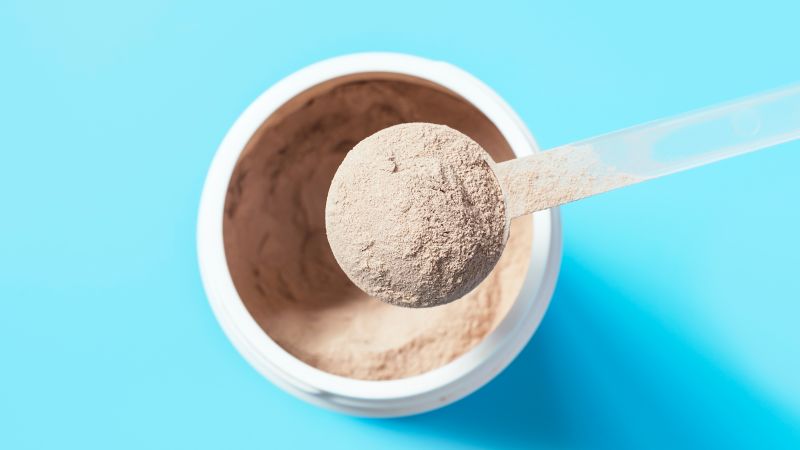[Over-the-counter protein powders may contain disturbing levels of lead and cadmium, with the highest amounts found in plant-based, organic, and chocolate-flavored products, according to a new investigation. There is no level of lead that is safe for humans, and cadmium is a carcinogen and toxic to the body’s heart, kidneys, gut, brain, respiratory and reproductive systems.
Organic protein powders had three times more lead and twice the amount of cadmium compared to non-organic products. Plant-based powders, such as those made from soy, rice, peas, and other plants, contained three times more lead than whey-based products.
Plants naturally absorb heavy metals from the planet’s crust, but can contain elevated levels if grown in soil that has been further contaminated by mining, industrial waste, and some pesticides and fertilizers. Chocolate flavoring was also a key source of contamination, with chocolate-flavored protein powders containing four times more lead and up to 110 times more cadmium than vanilla-flavored powders.
Despite being rich in flavonoids, antioxidants, and other beneficial minerals, dark chocolate, or cacao, has been found to contain high levels of heavy metals. A 2024 study found 43% of six dozen dark chocolate products exceeded California’s Proposition 65’s maximum allowable dose level for lead of 0.5 parts per million.
Heavy metal contamination is a global food safety problem, with contaminants present in even items represented as health foods. The Council for Responsible Nutrition, an industry association that represents supplement manufacturers, said the new report did not provide sufficient transparency about contamination thresholds and product selection.
The Clean Label Project, which released the report, purchased 160 products from 70 of the best-selling brands of protein powders, but did not disclose the names of the companies tested. The project sent the samples to an independent certified laboratory, which ran nearly 36,000 individual tests on 258 different contaminants, including heavy metals, bisphenols, phthalates, and perfluoroalkyl and polyfluoroalkyl substances.
The report found that 47% of the 160 protein powder samples tested exceeded California’s Proposition 65 regulatory guidelines, with about 21% of the powders containing levels twice as high as the Prop 65 limit. Nearly 80% of plant-based and organic protein powders tested were over the Prop 65 limit for lead. However, only 26% of collagen-based protein products and 28% of whey-based products exceeded the California lead limit.
It’s not necessary to stop using protein powders as part of a healthy lifestyle, but it’s important to shop smart. For people following a fully plant-based diet, protein powders made from peas appear to have the lowest levels of heavy metals. If you don’t have any dietary restrictions, whey-based or egg-based, vanilla-flavored protein powders may have the least amount. Reaching out to favorite brands to inquire about contaminant levels is also a smart action by consumers.
Source link

